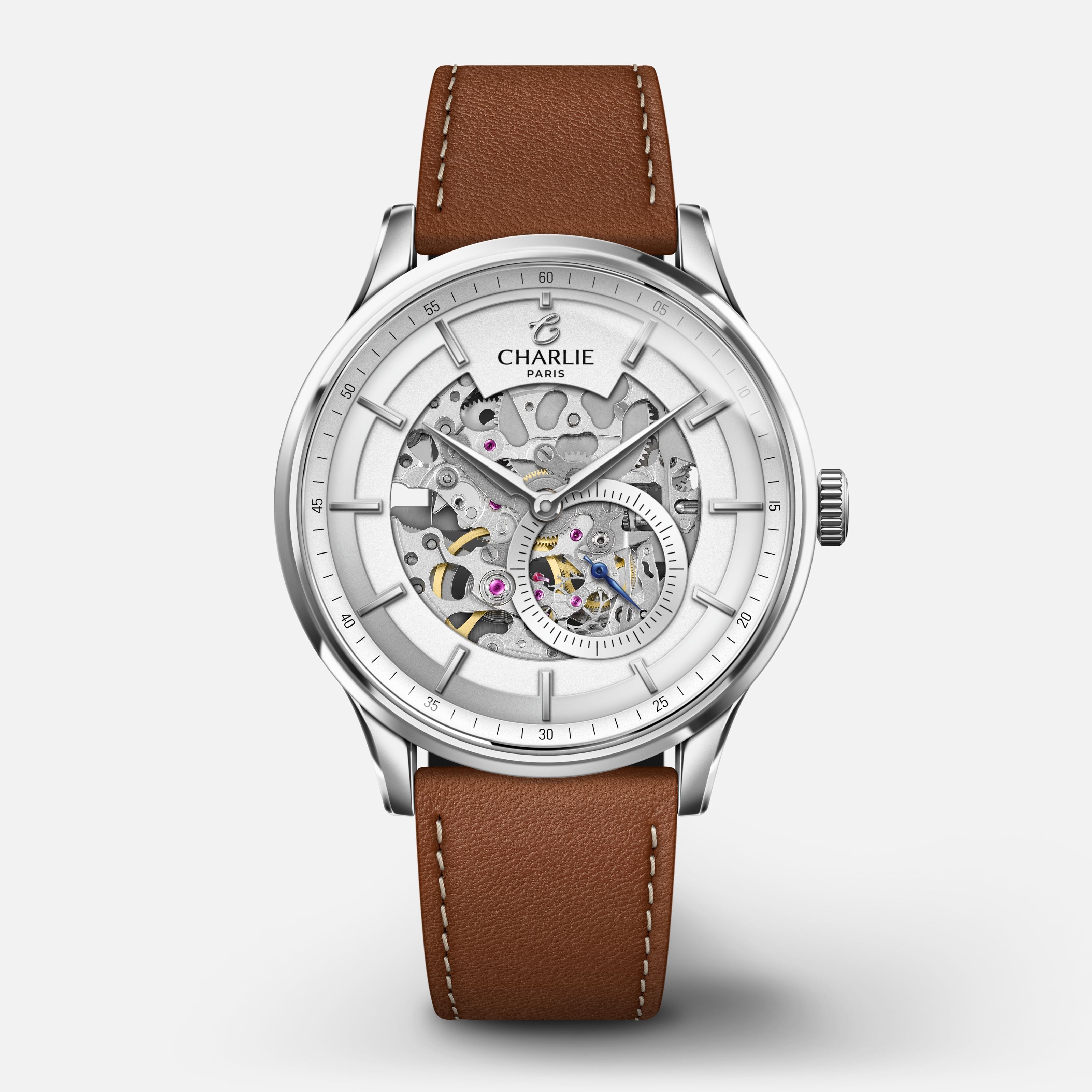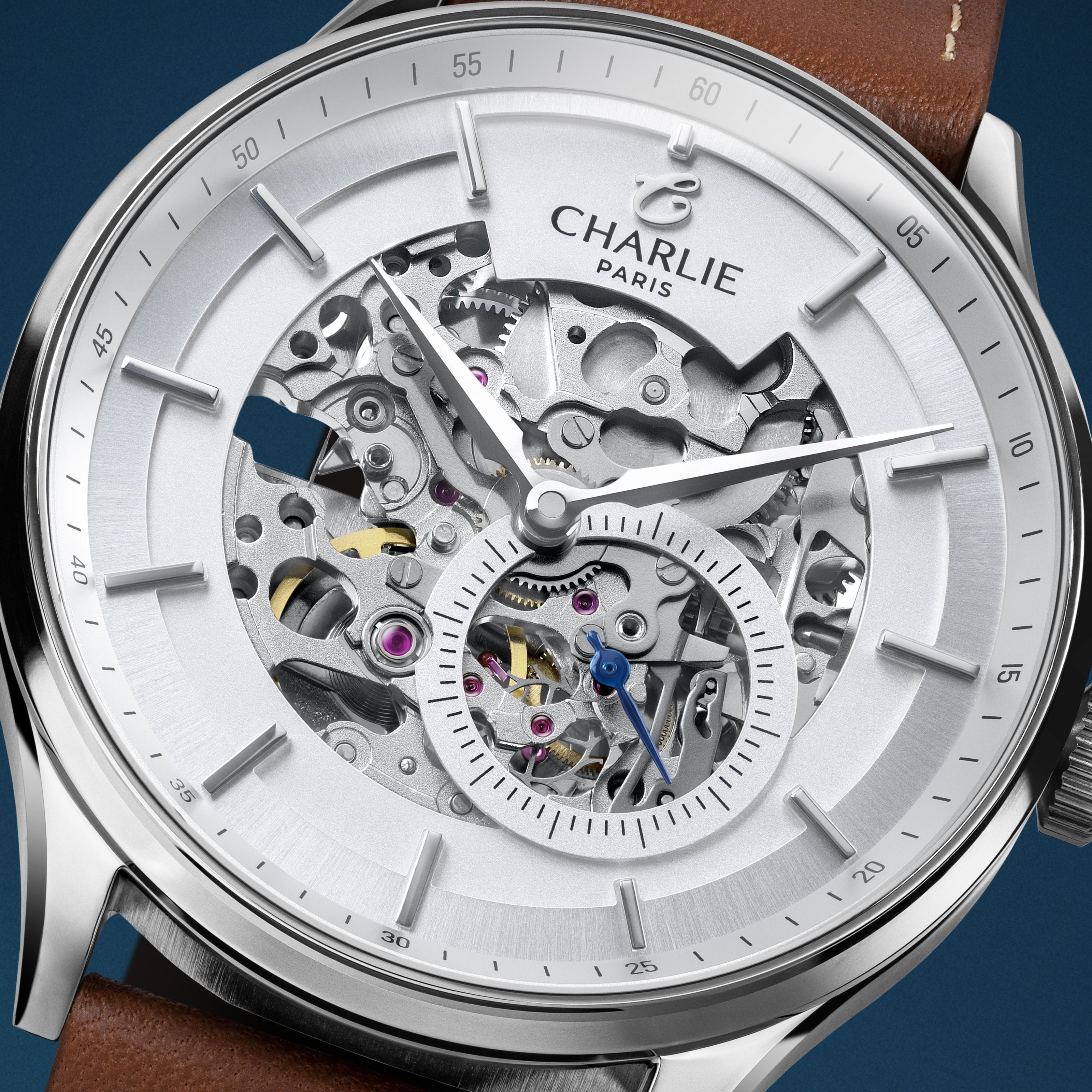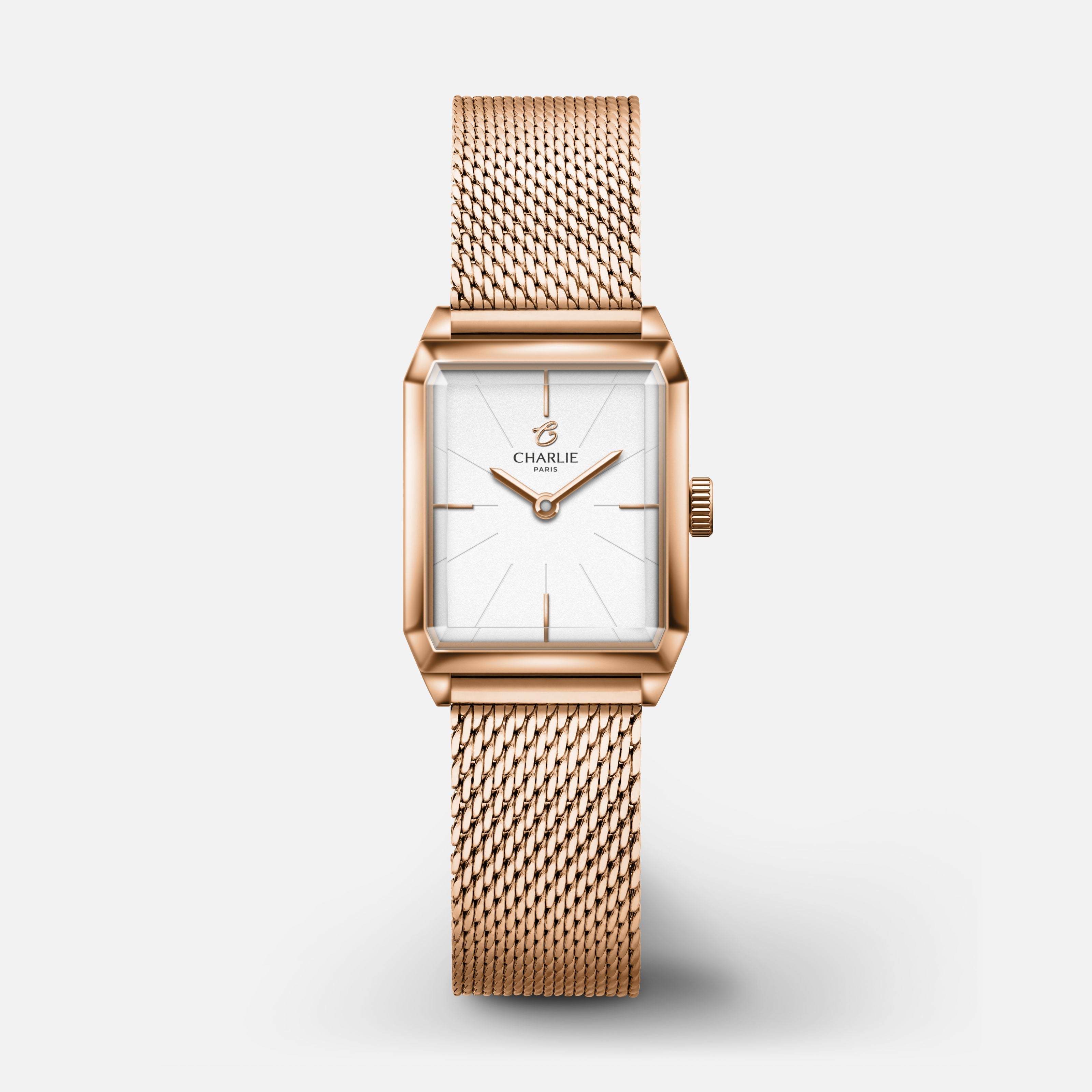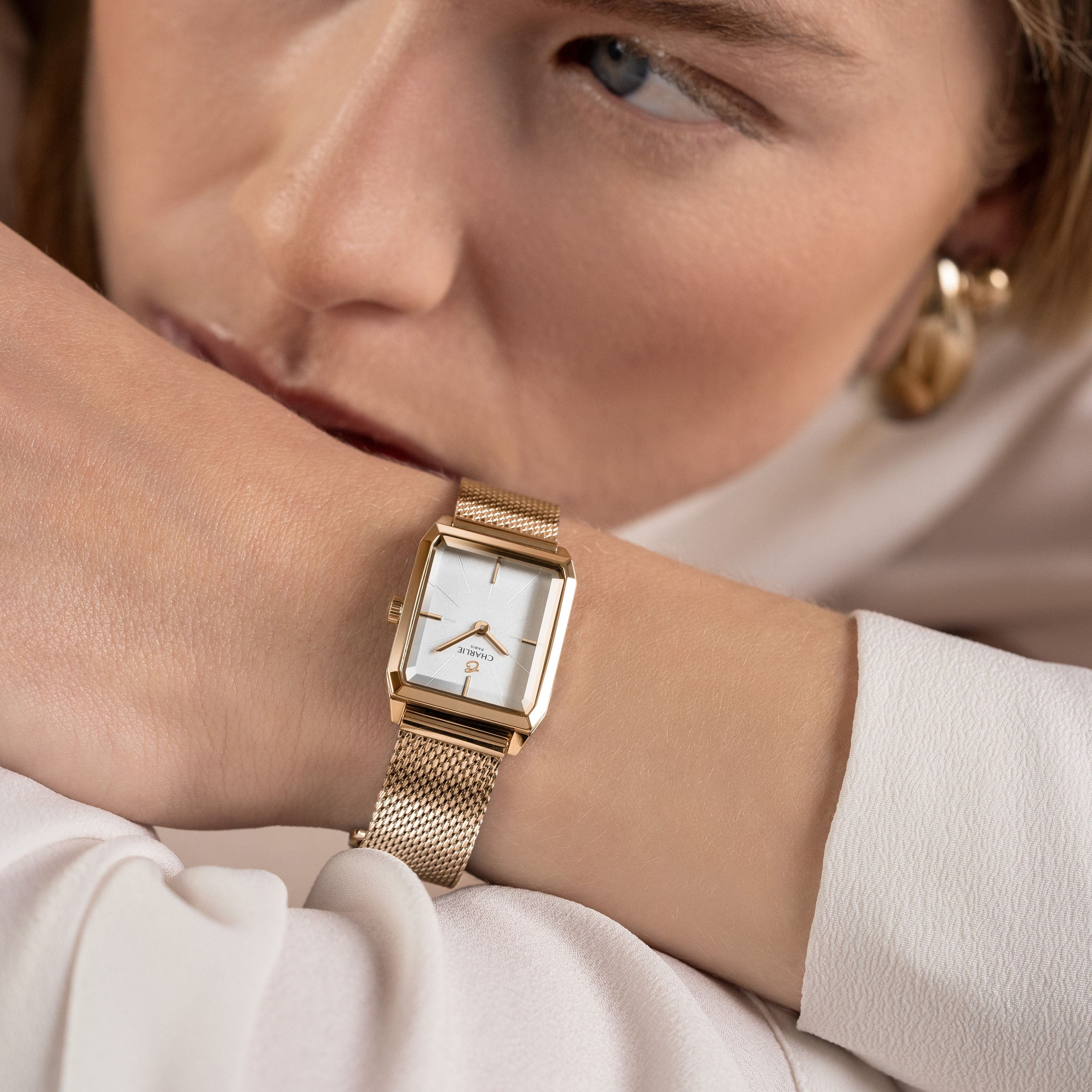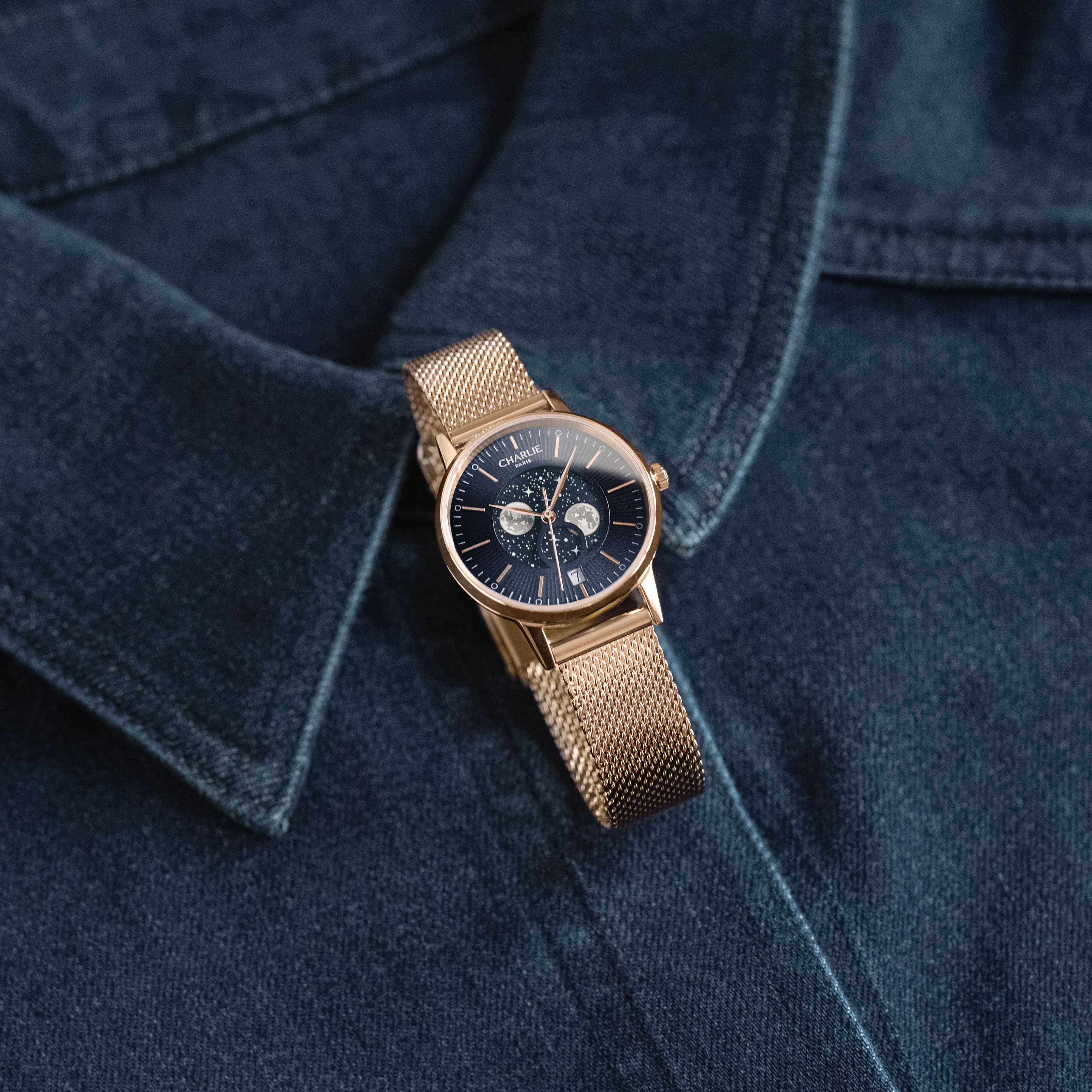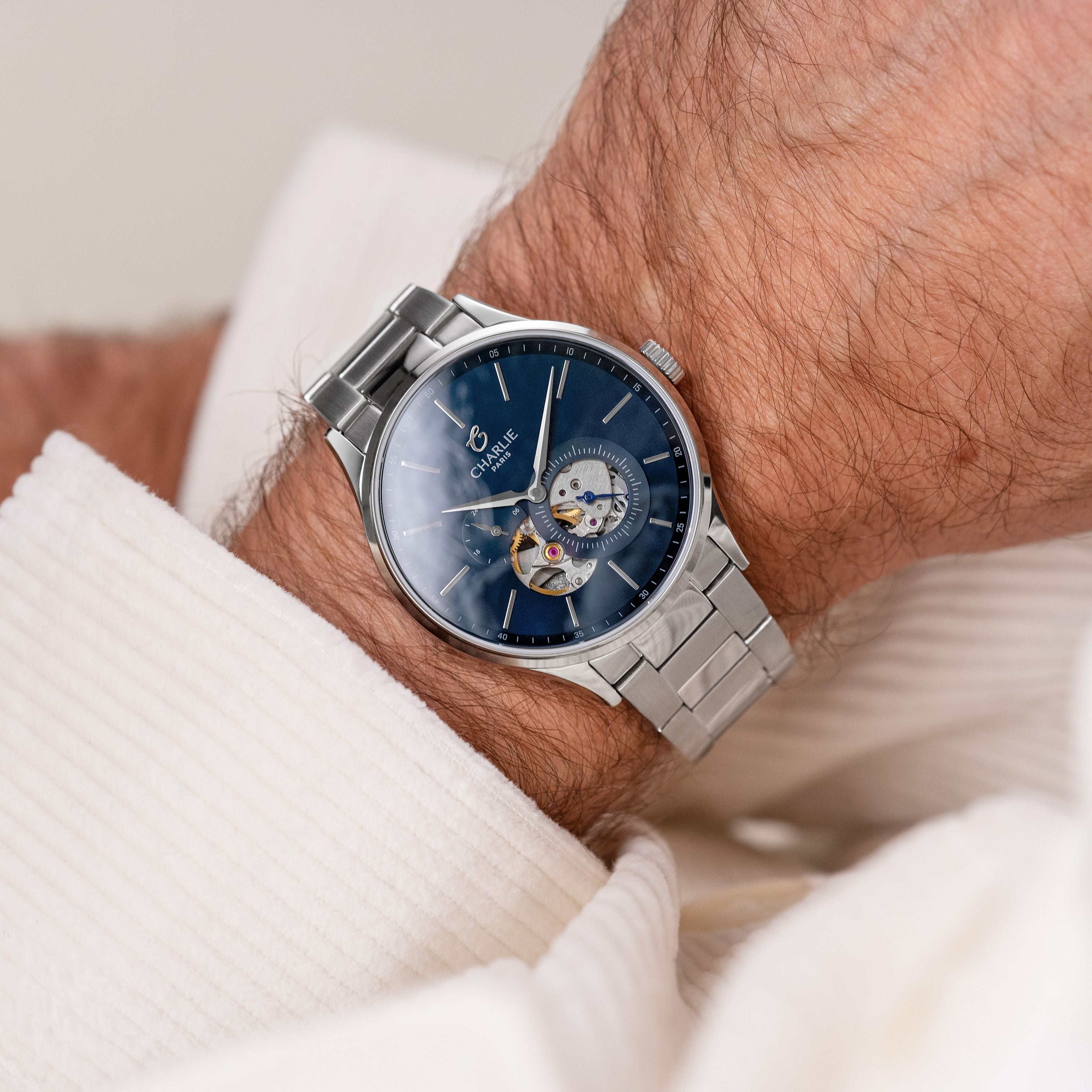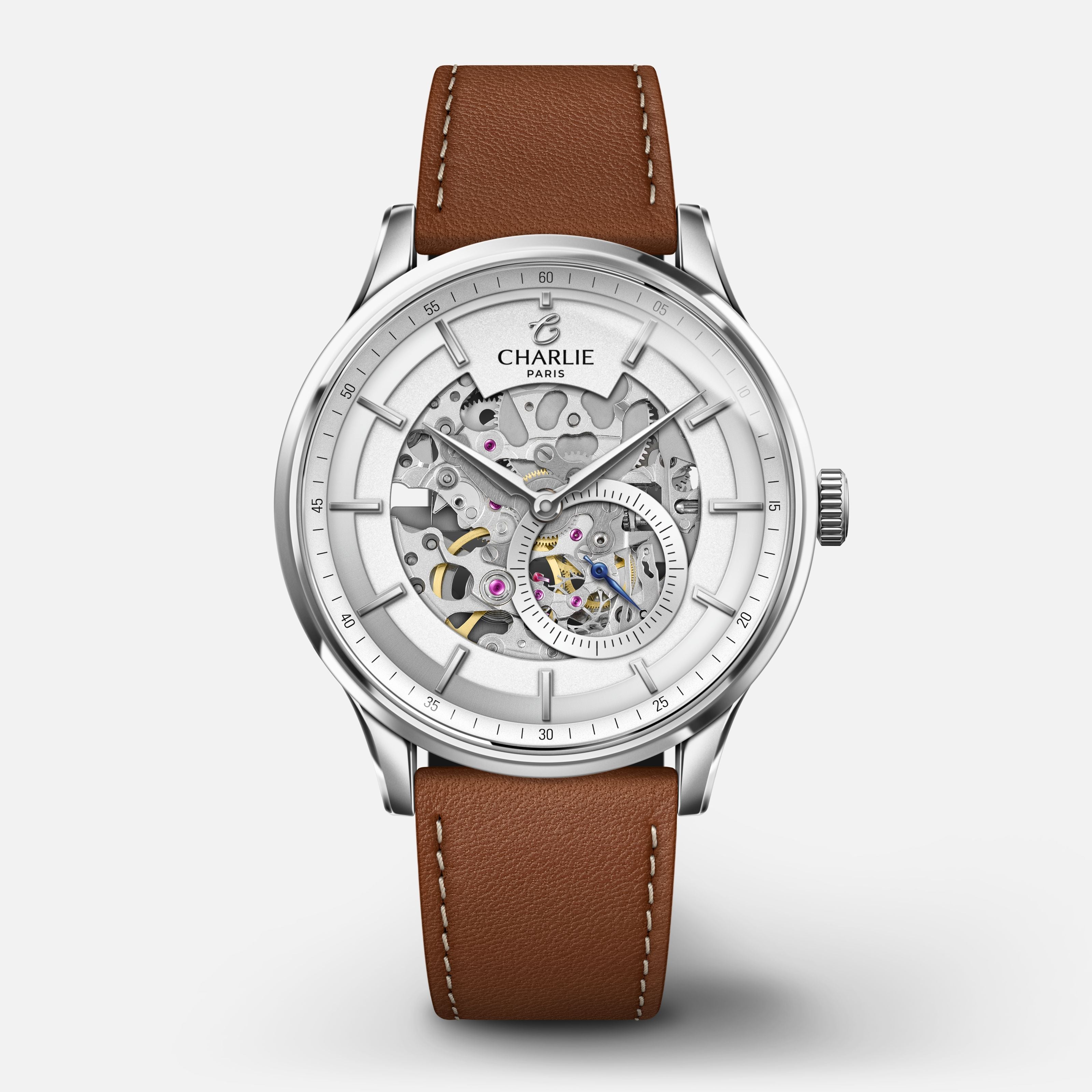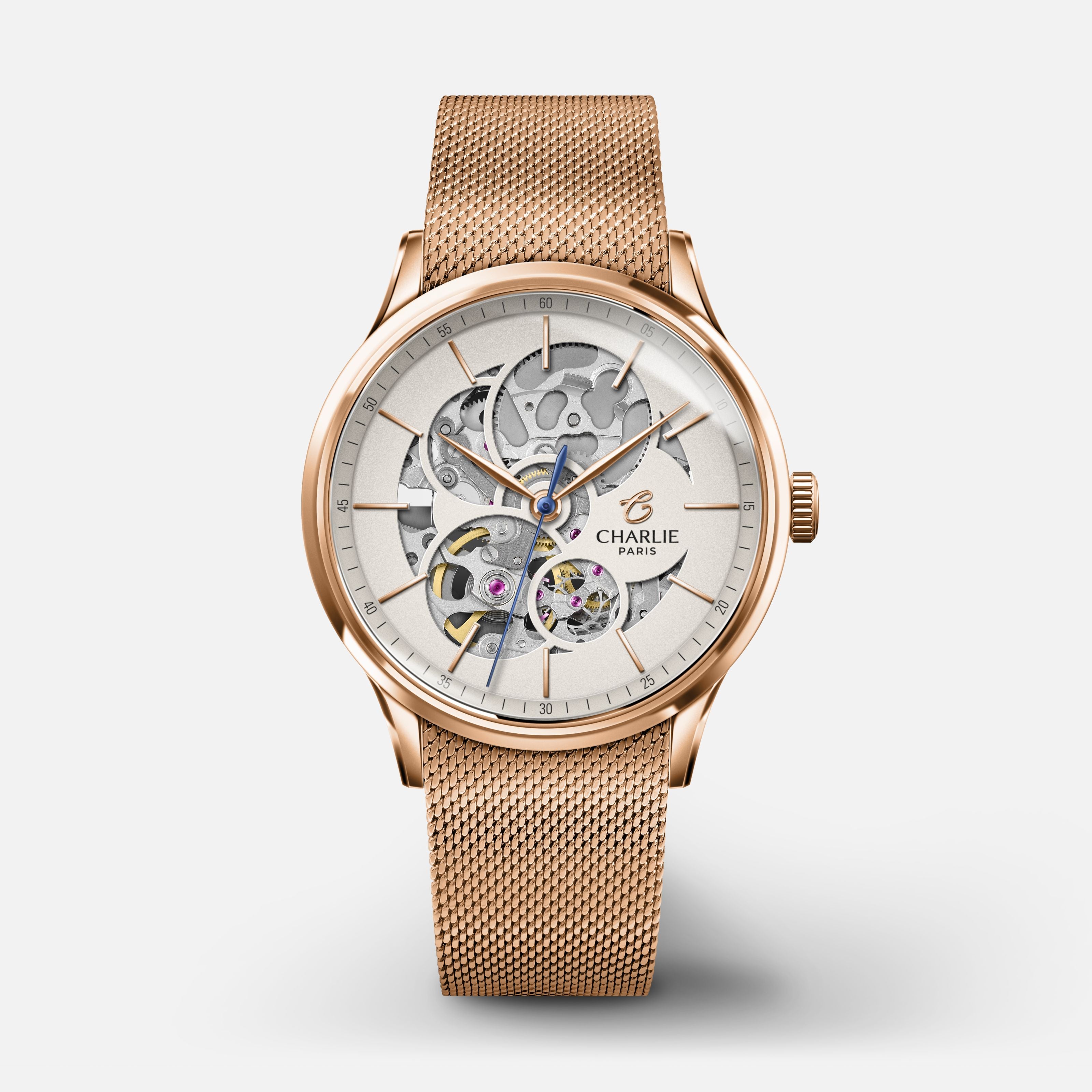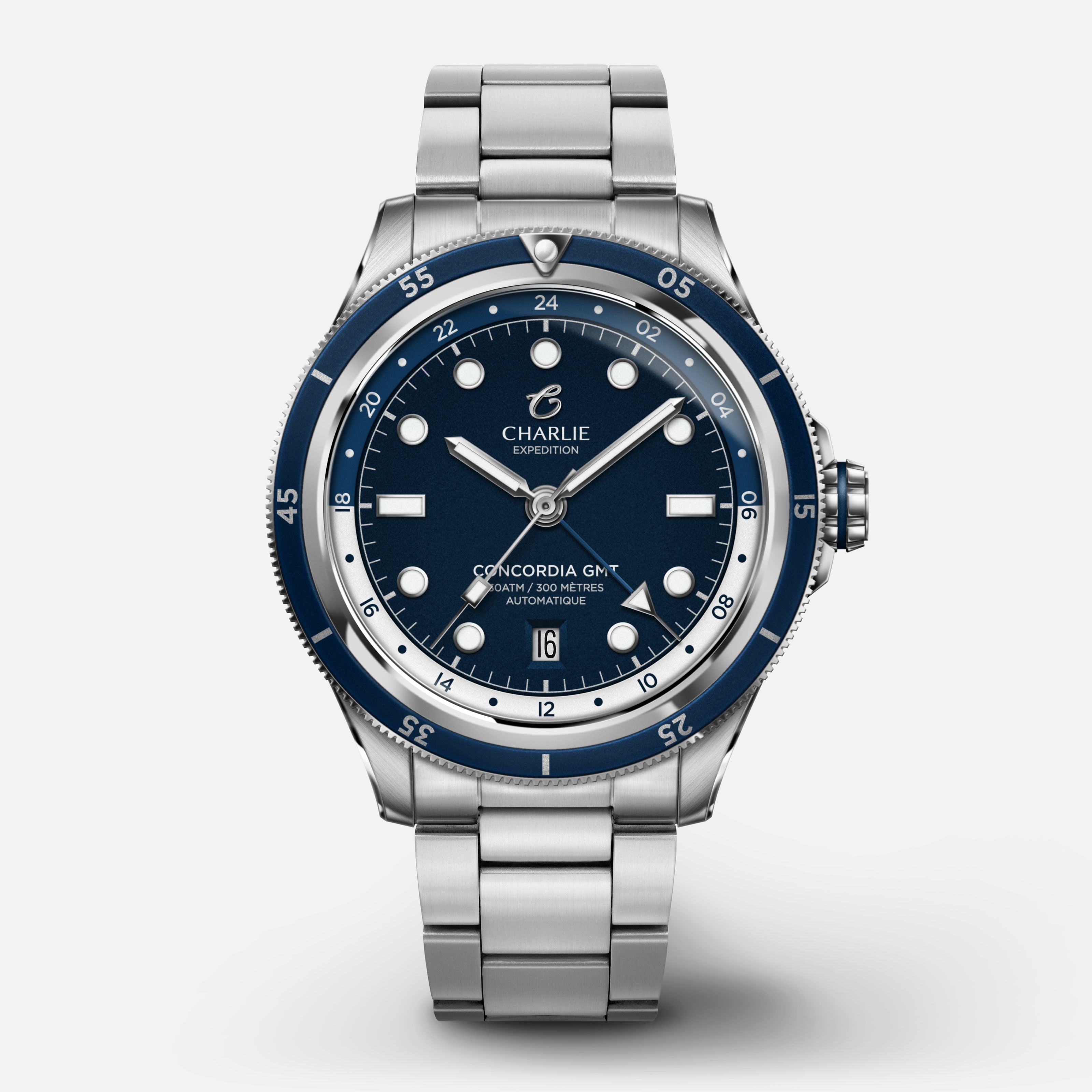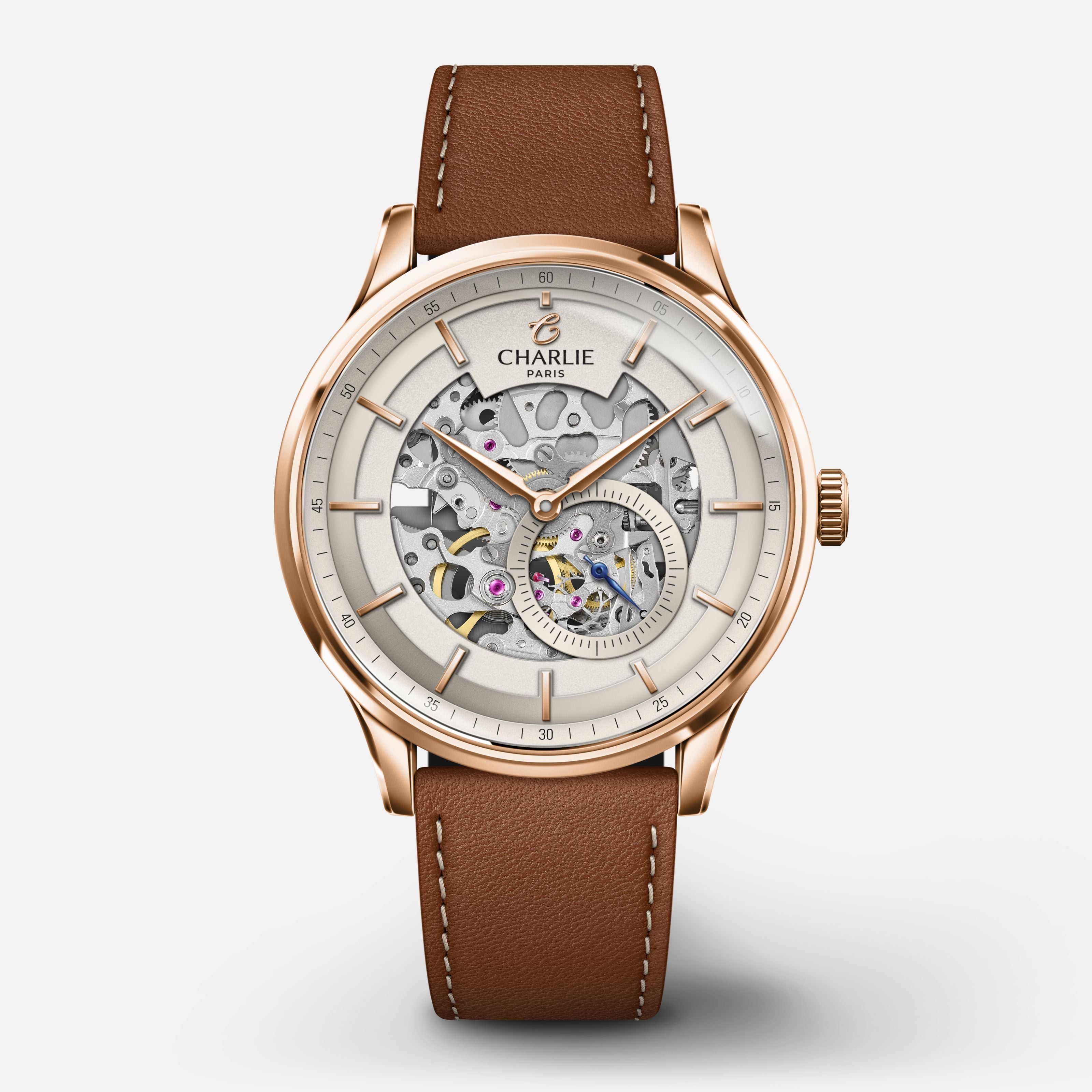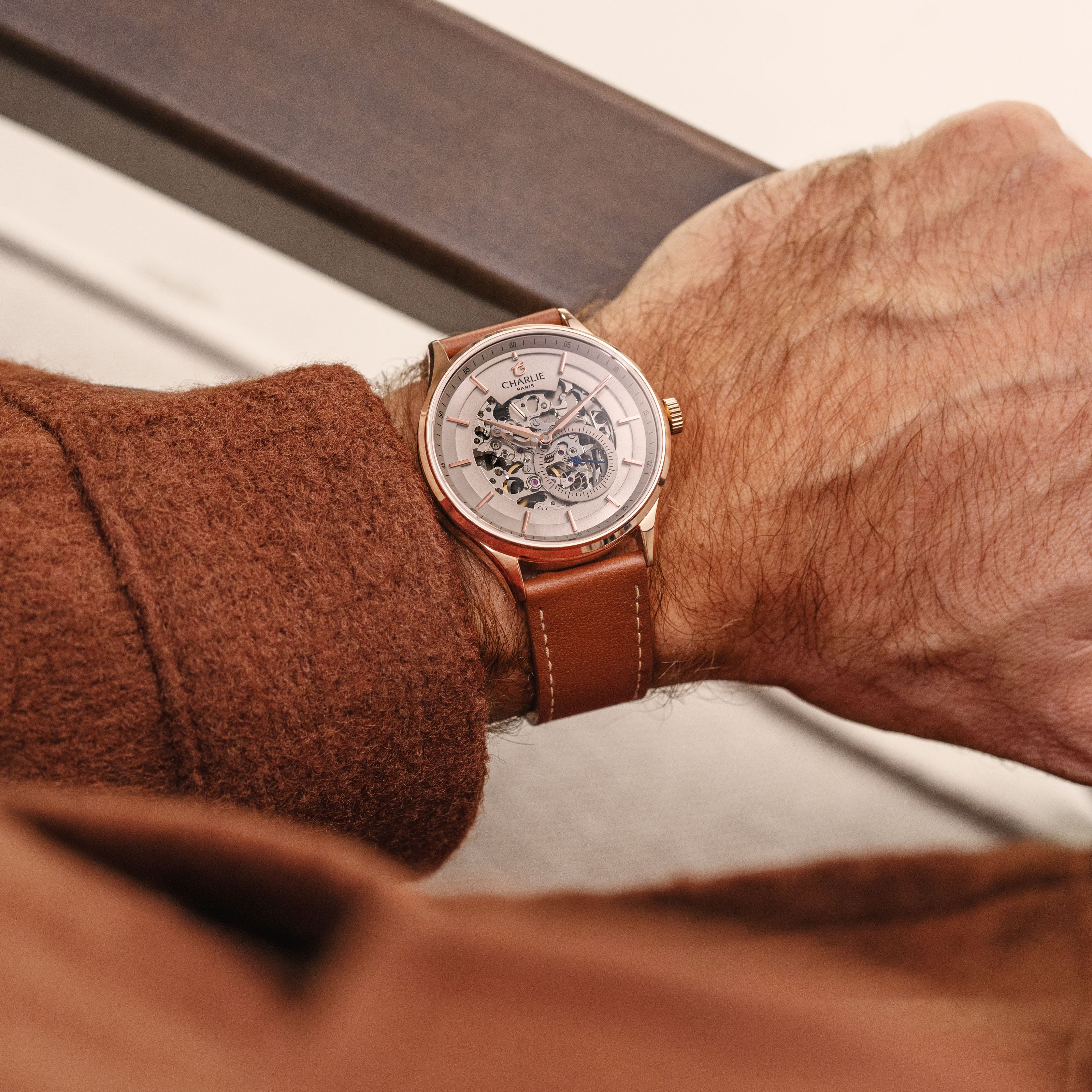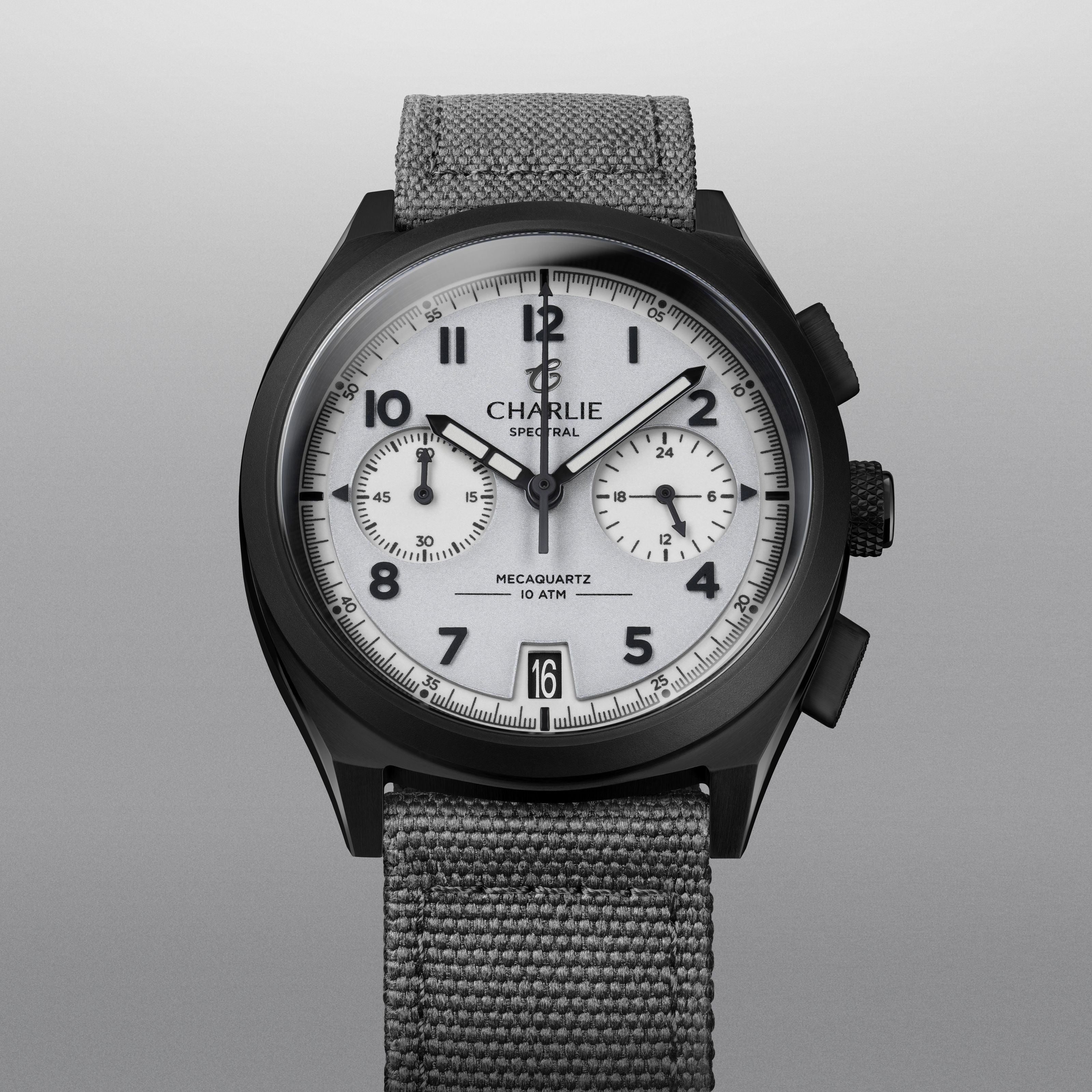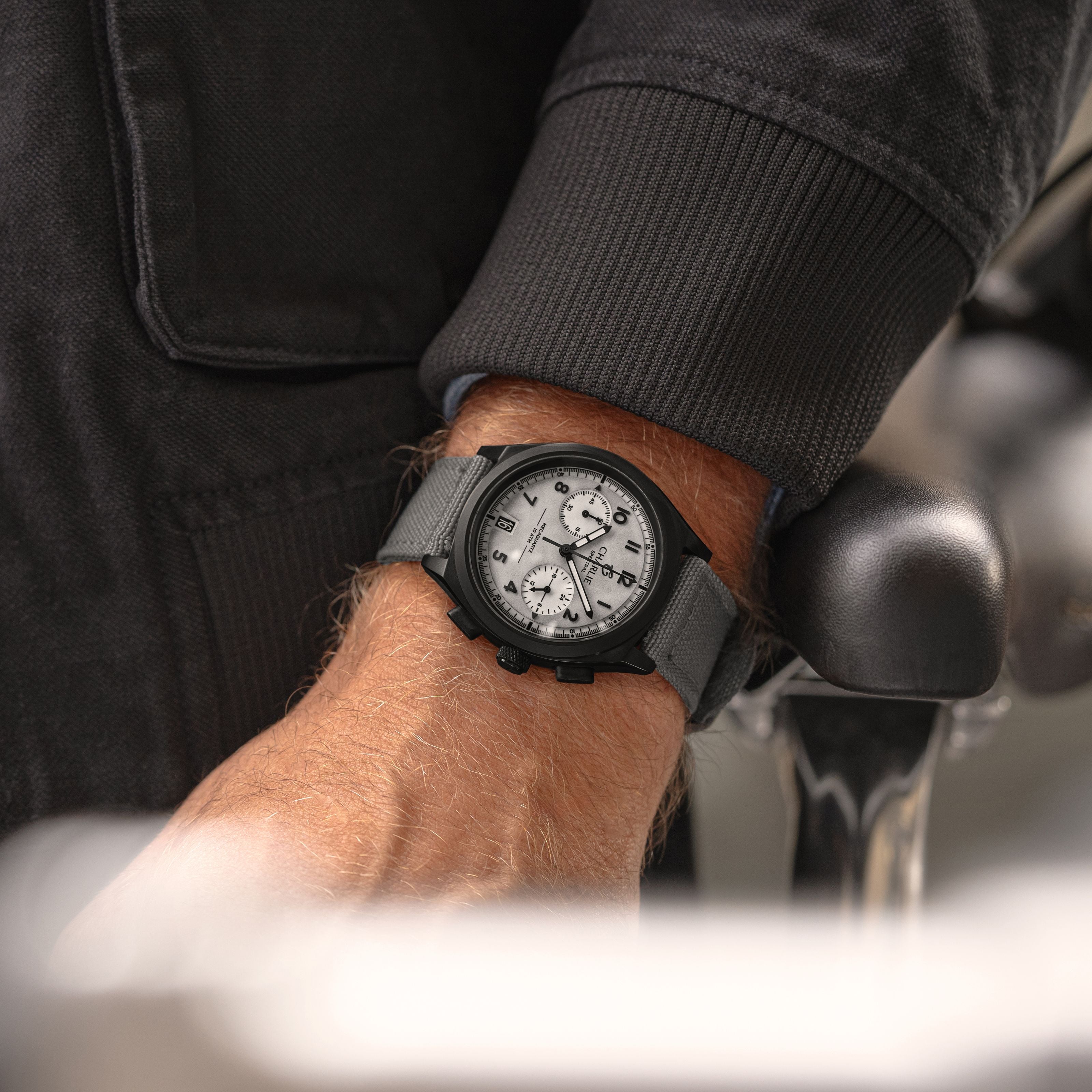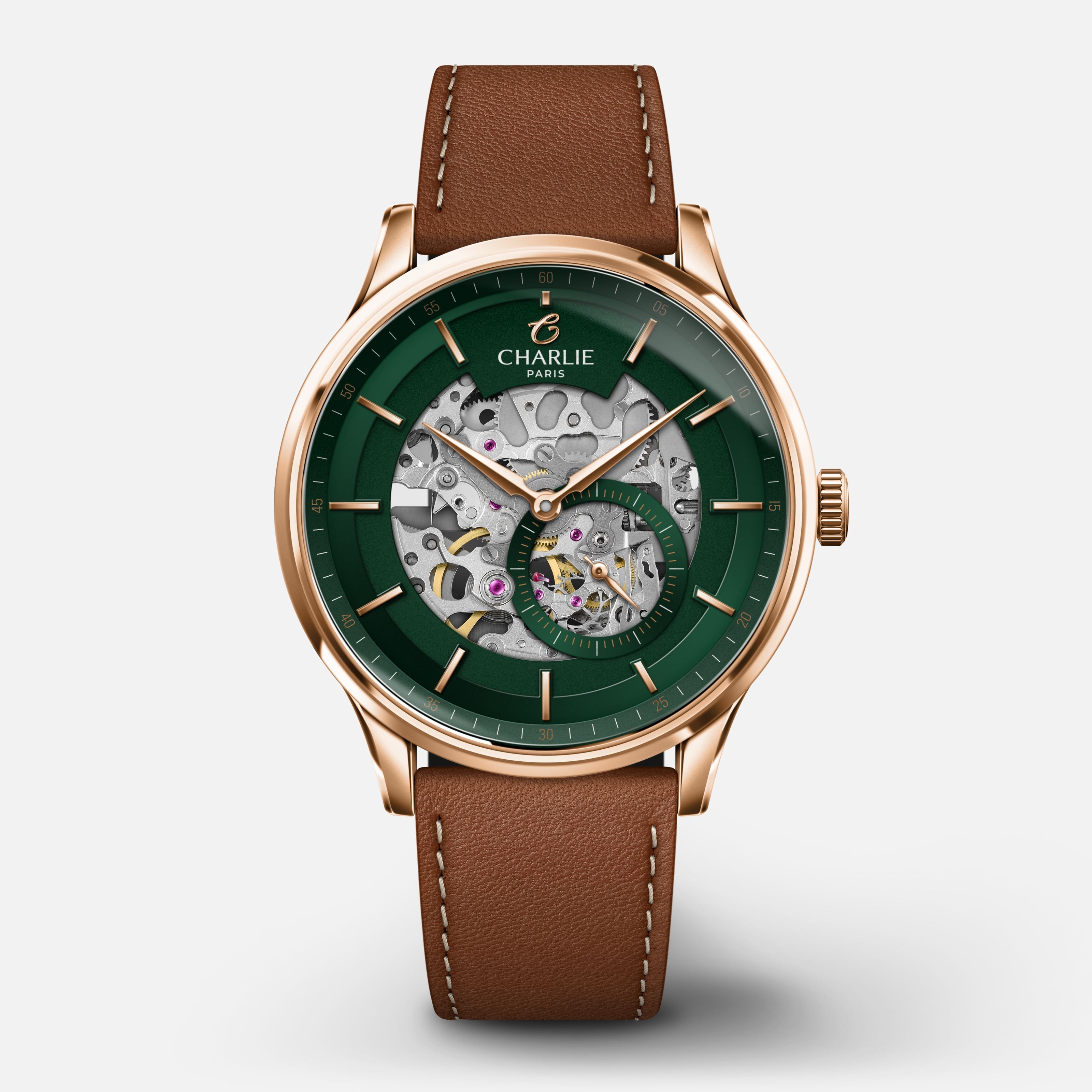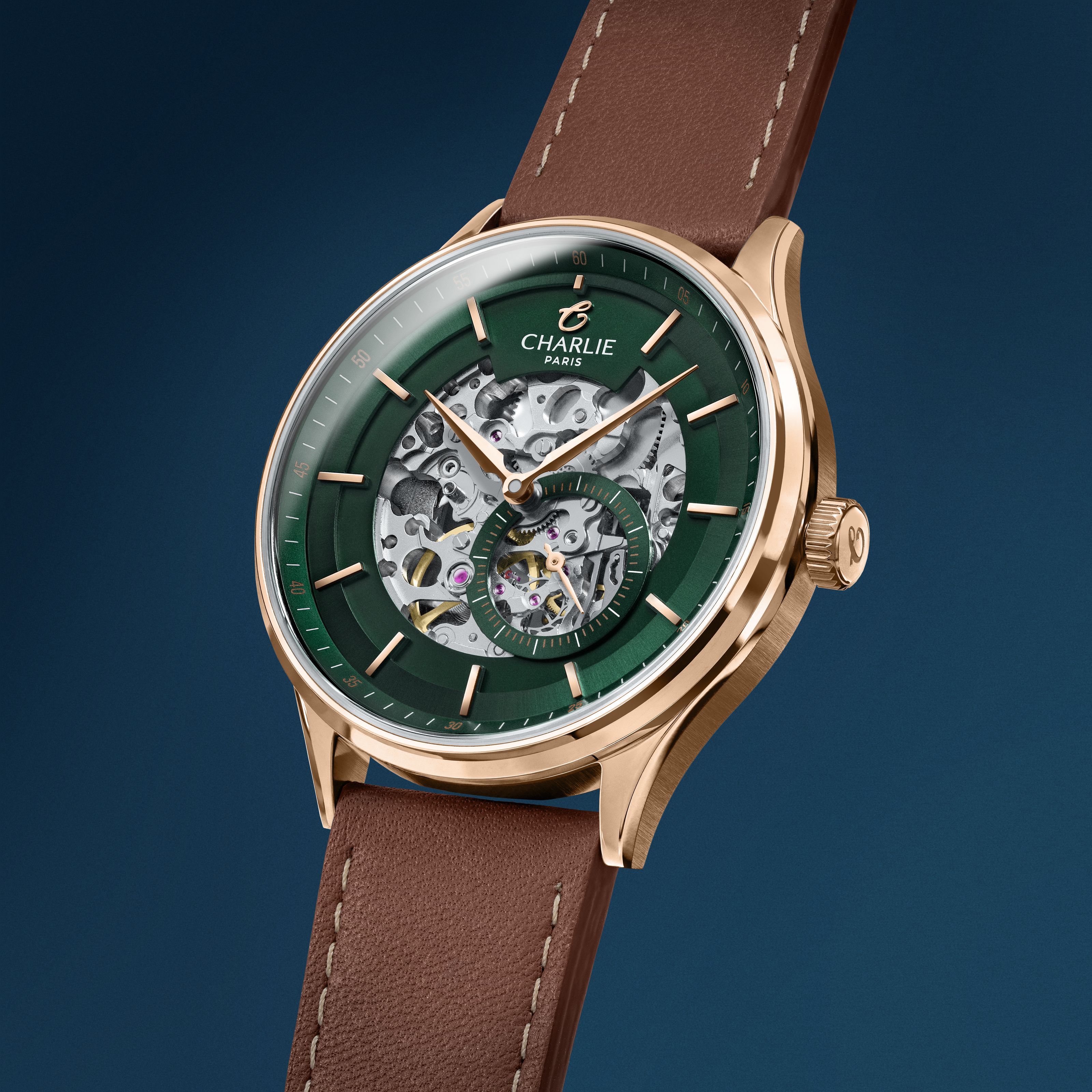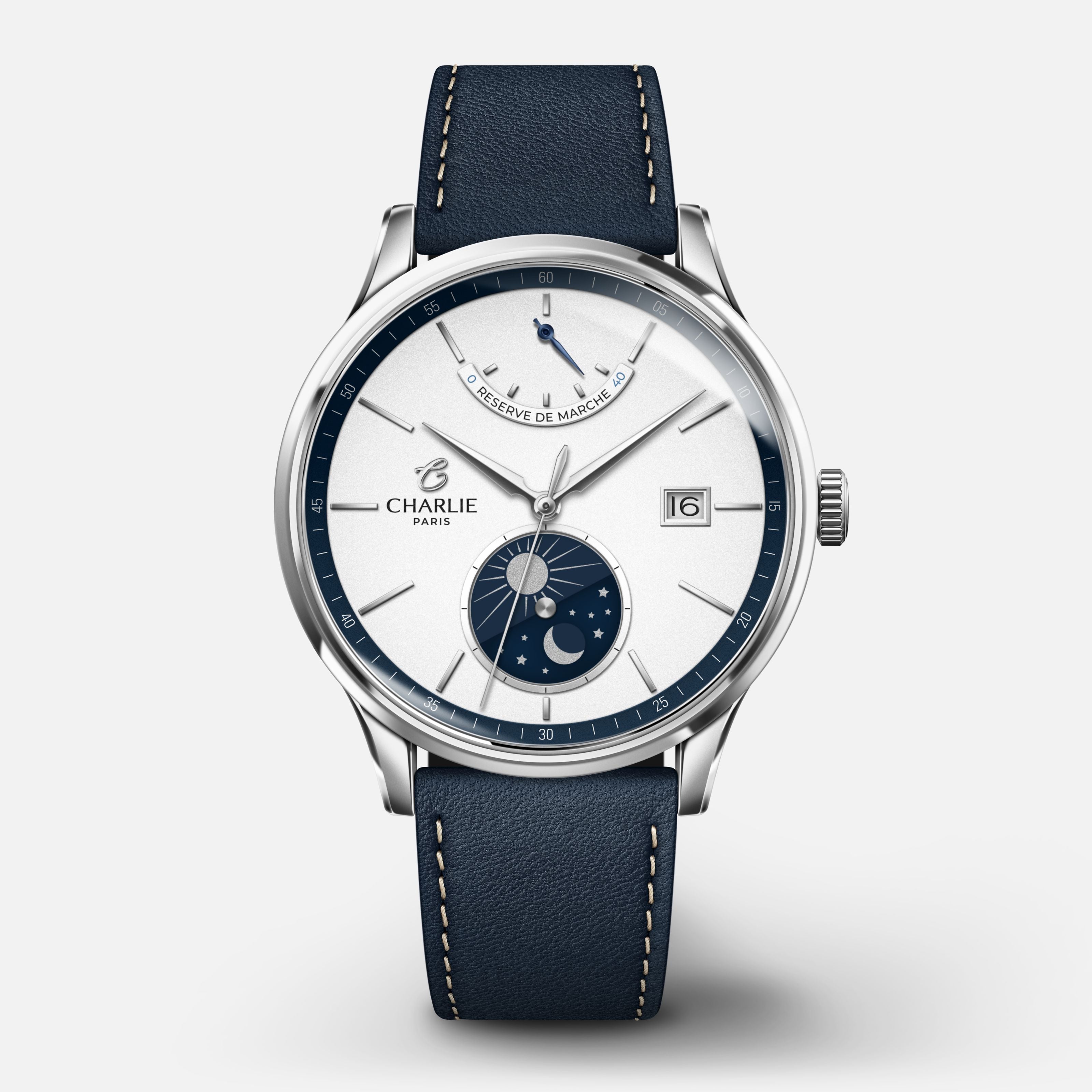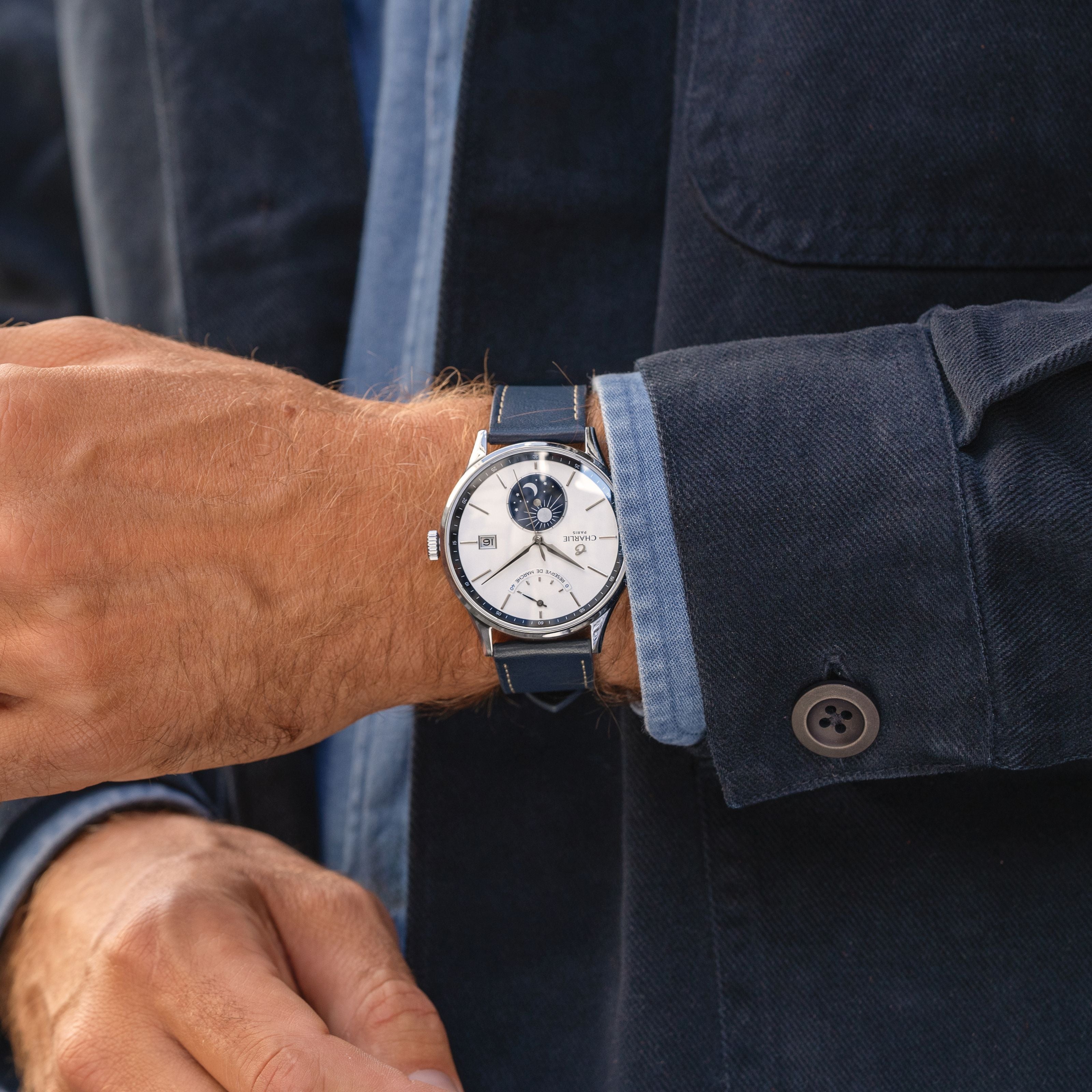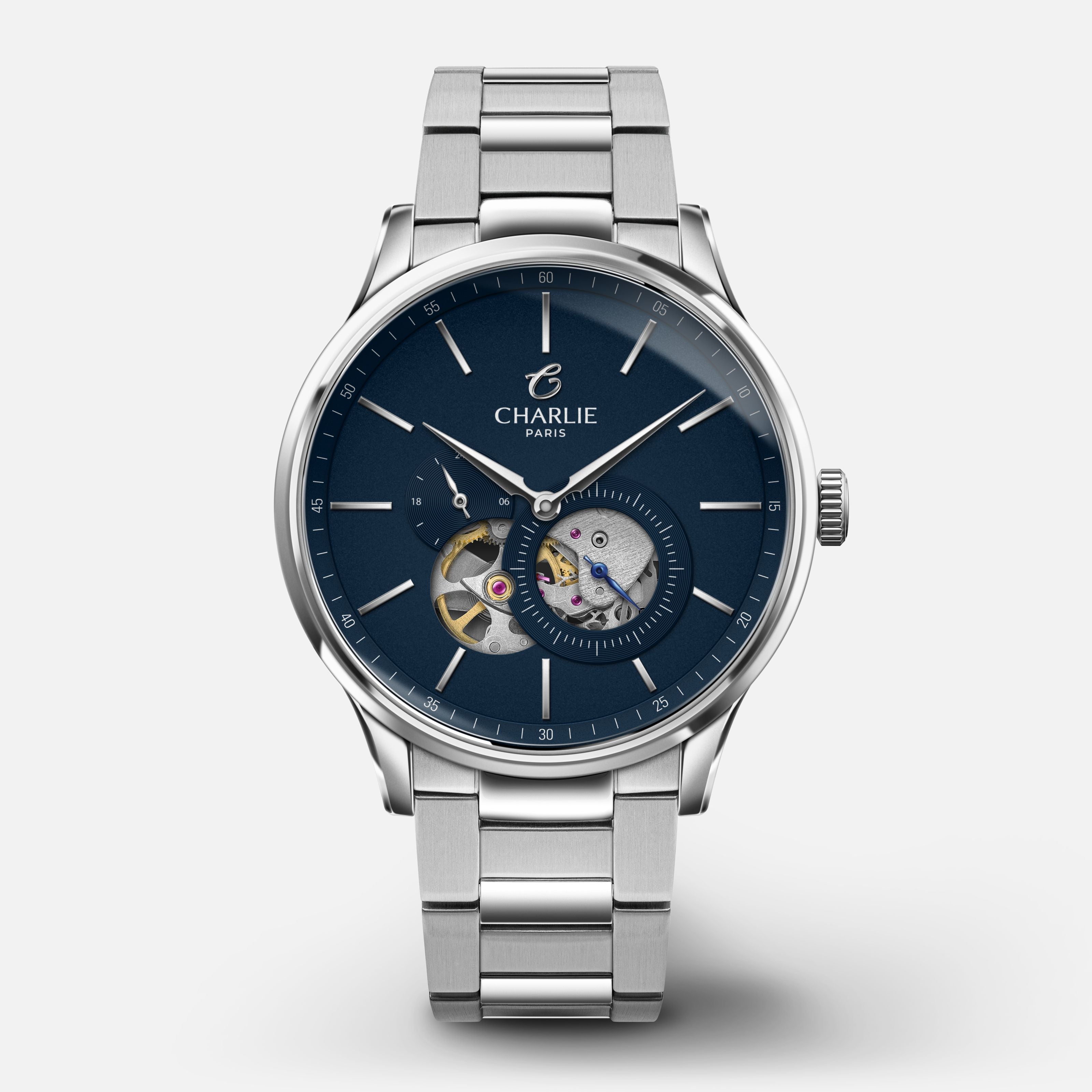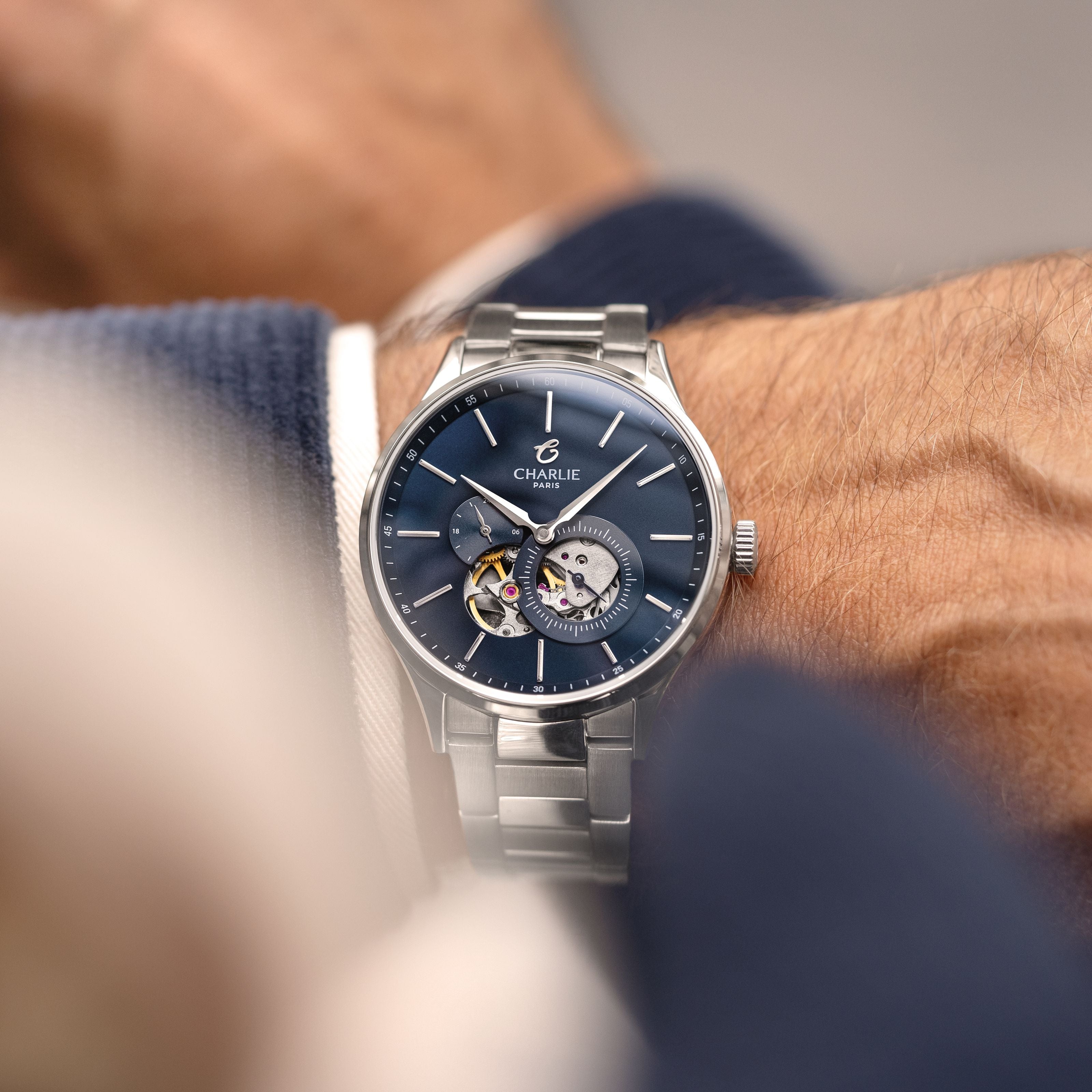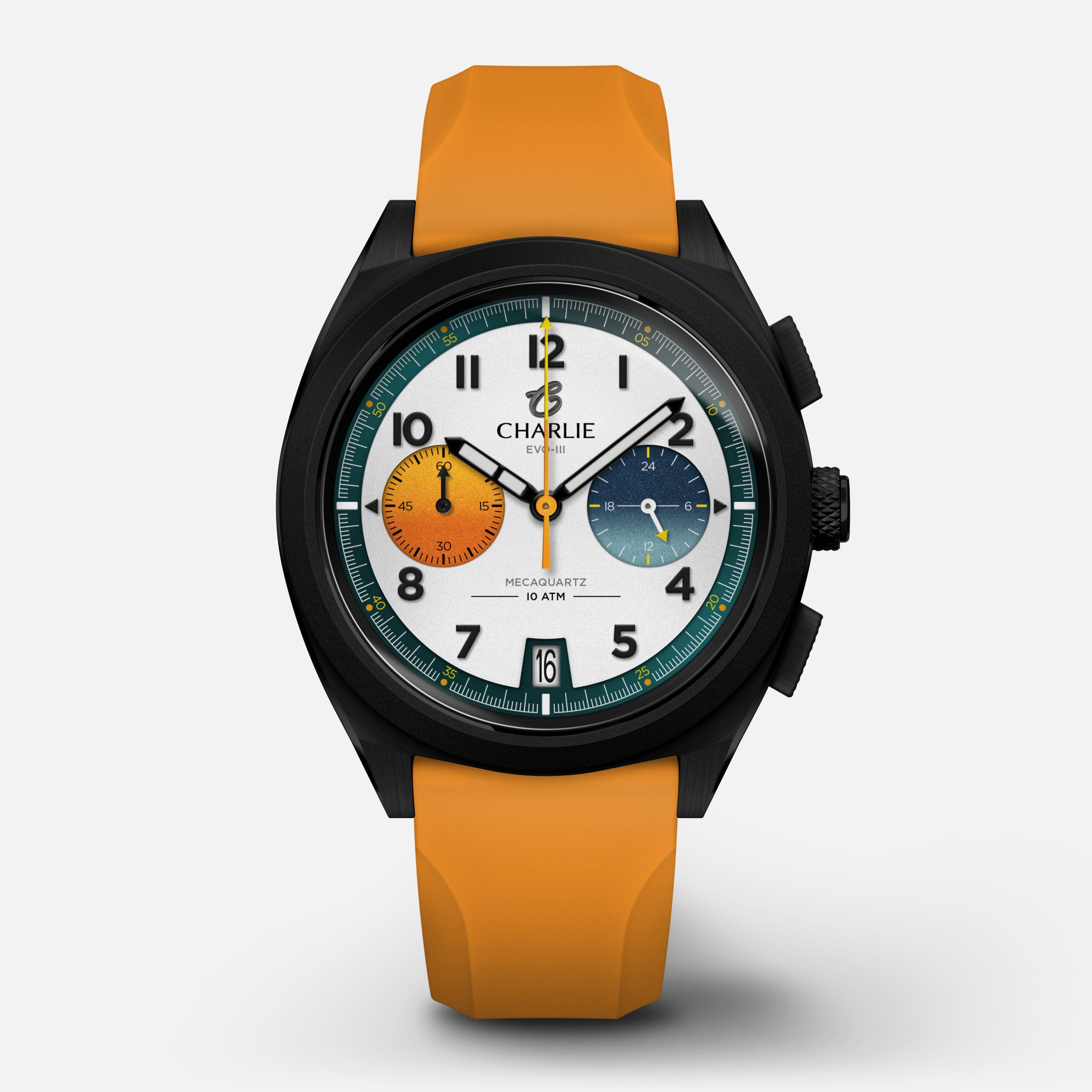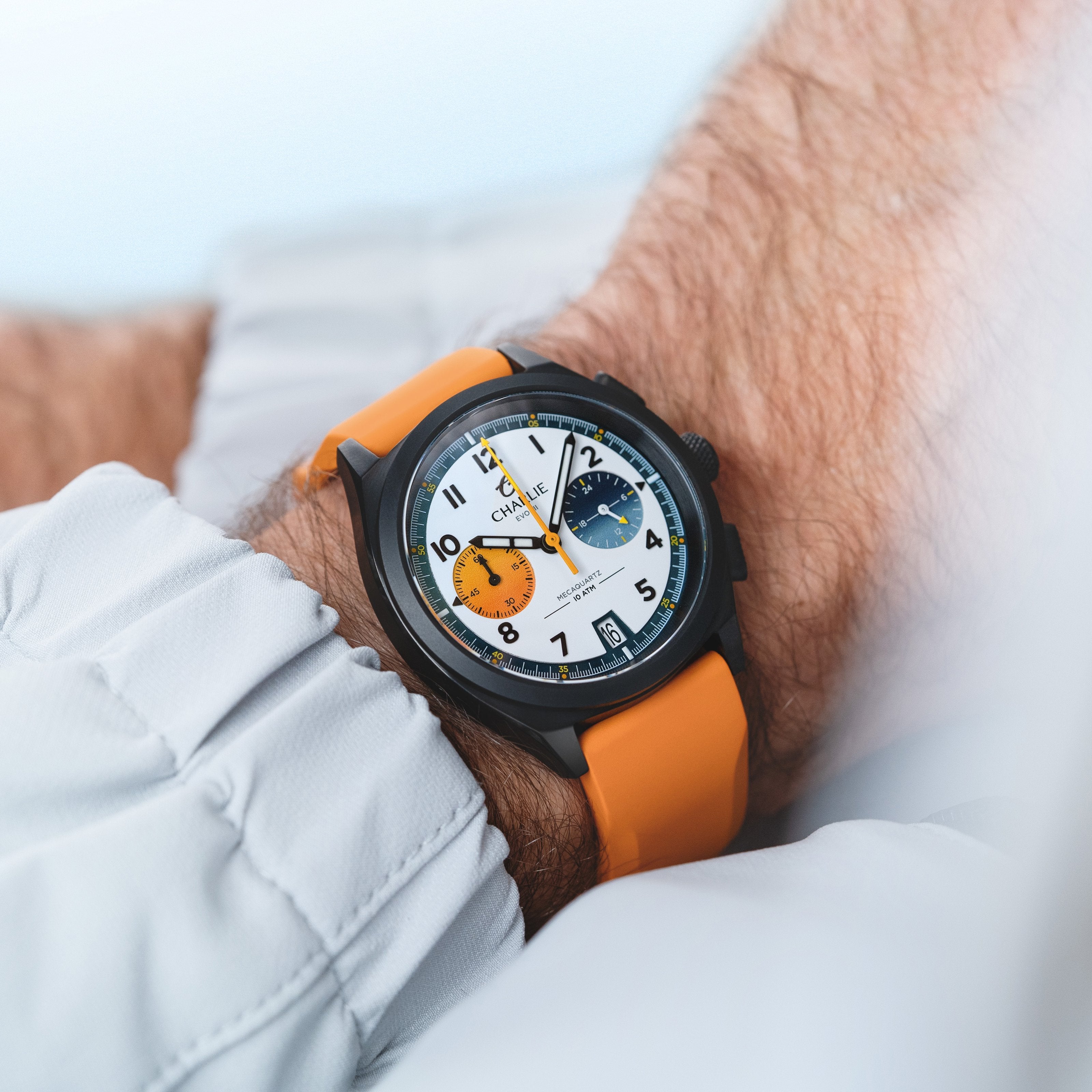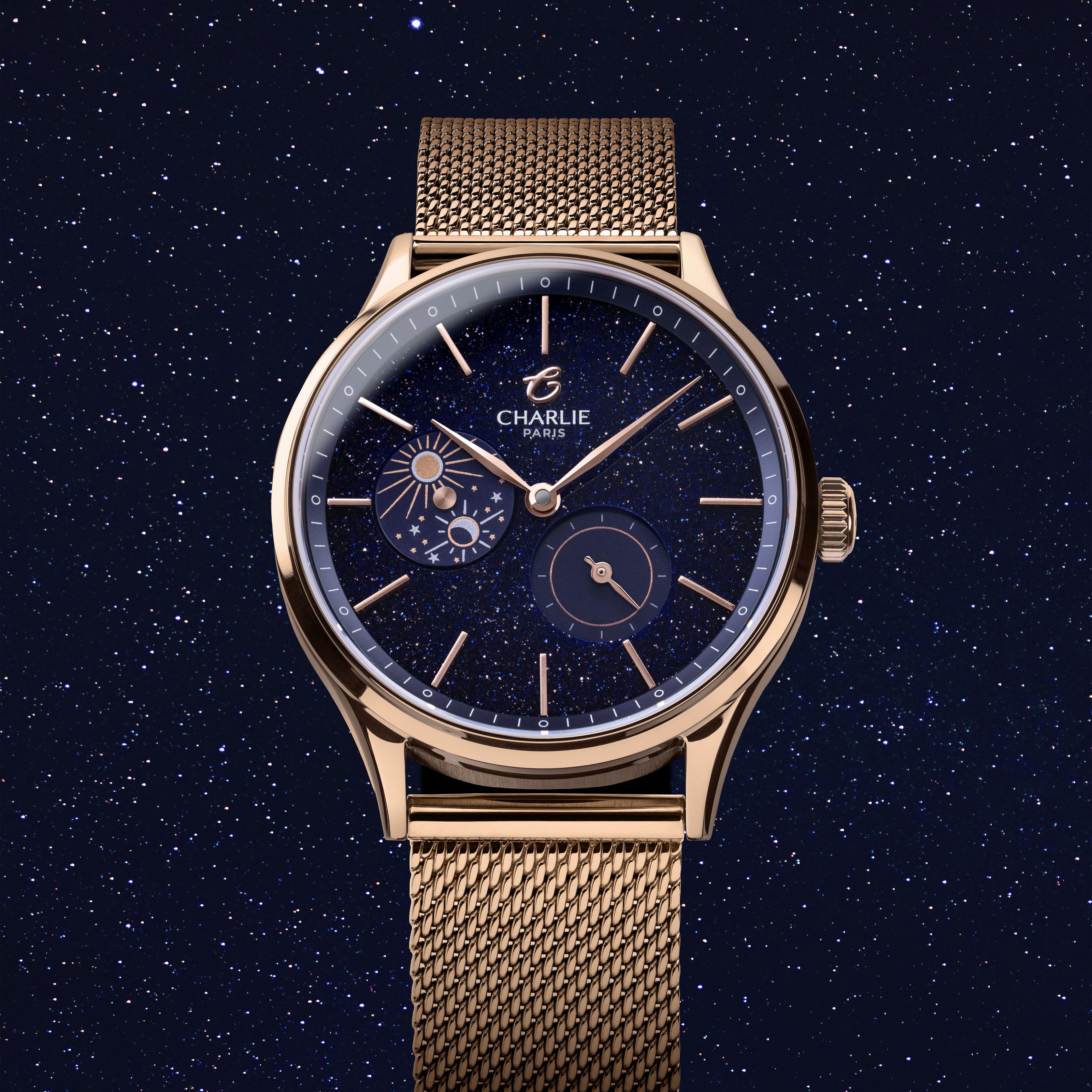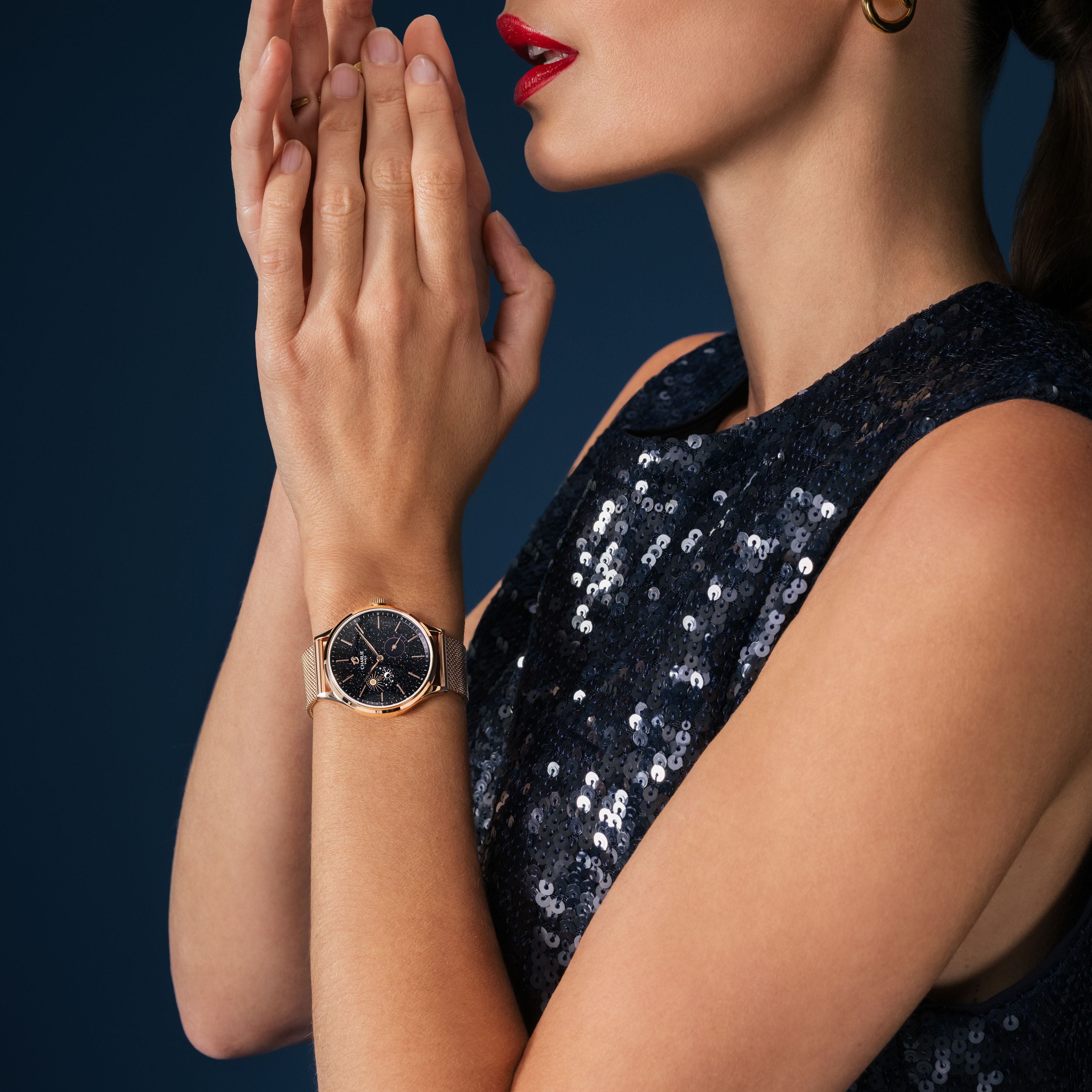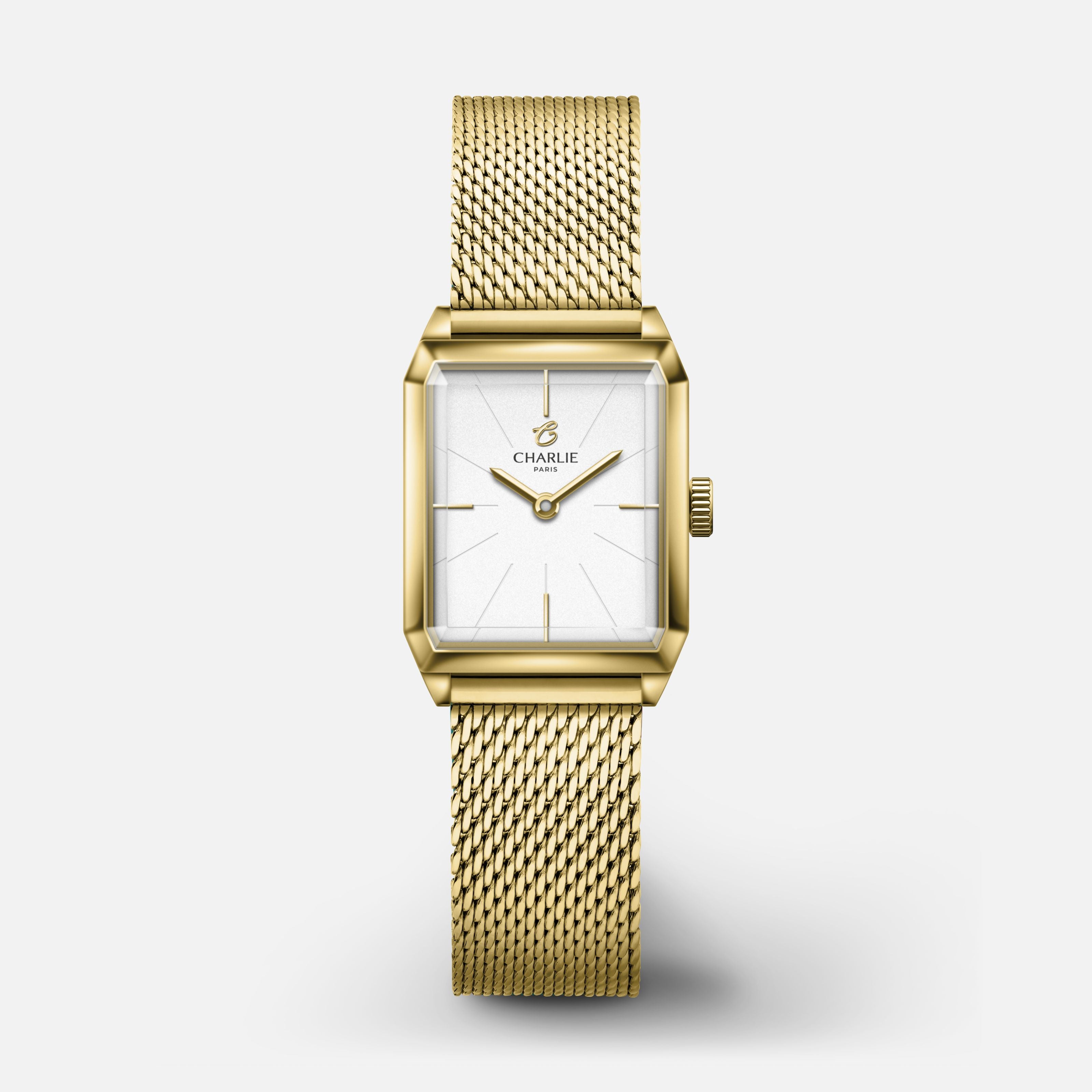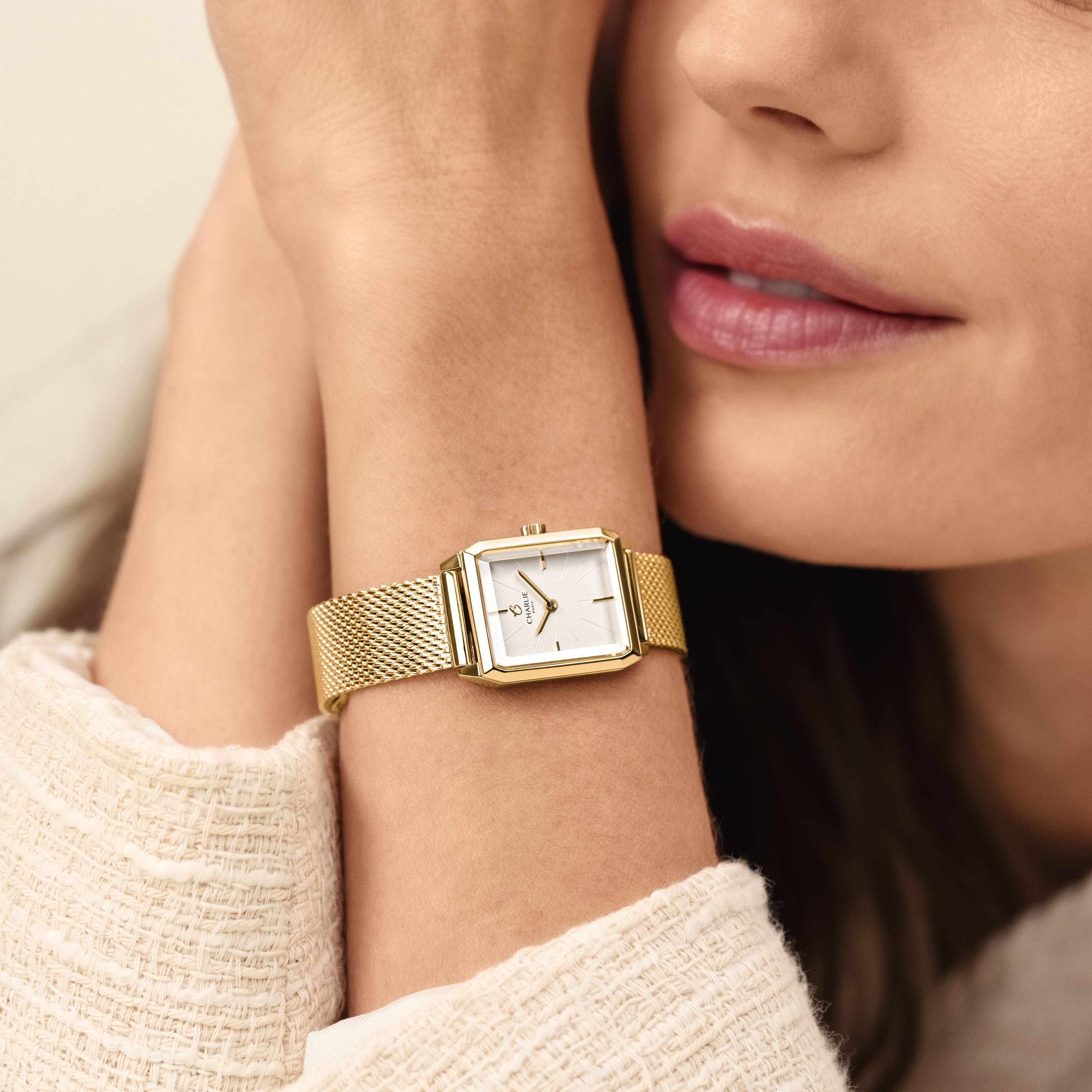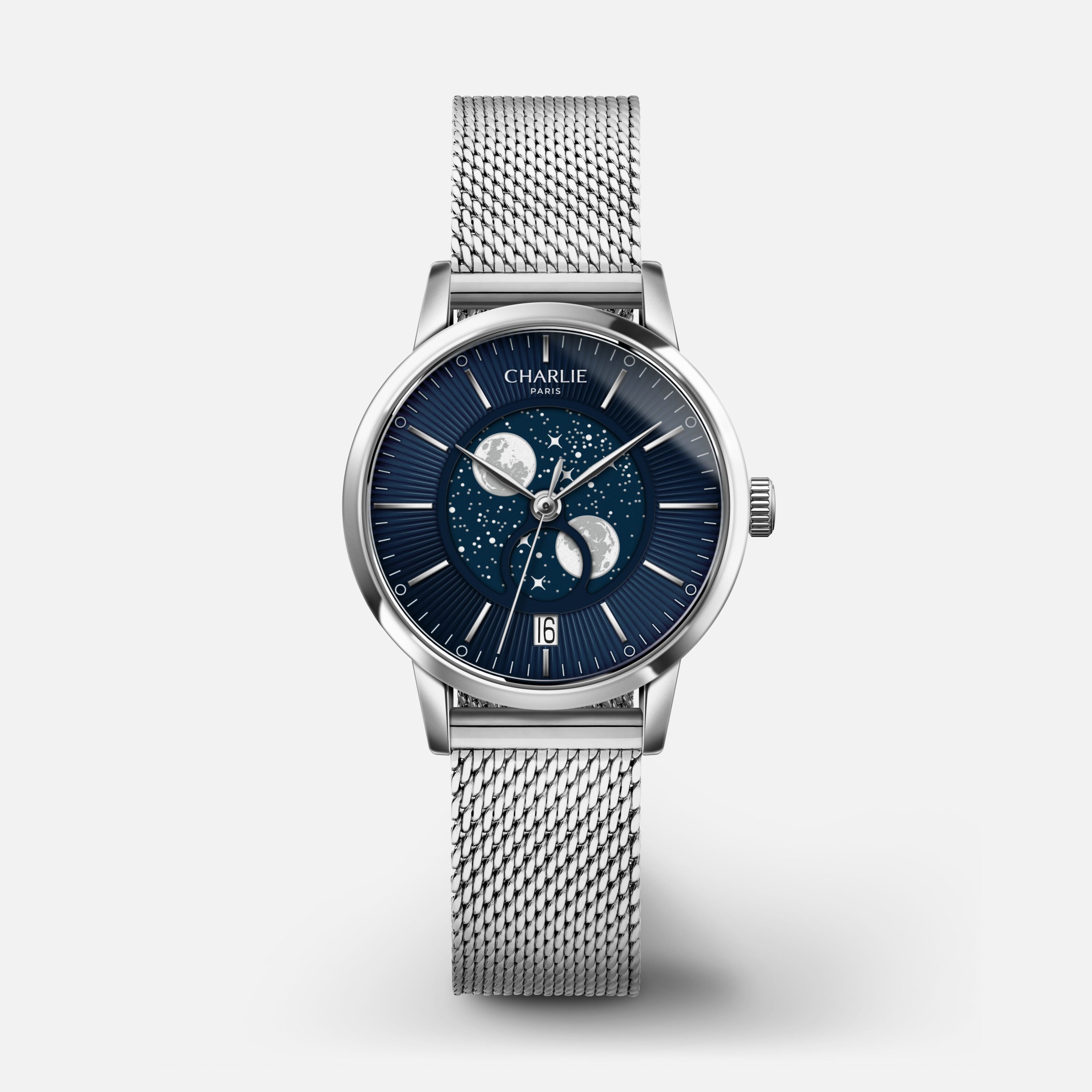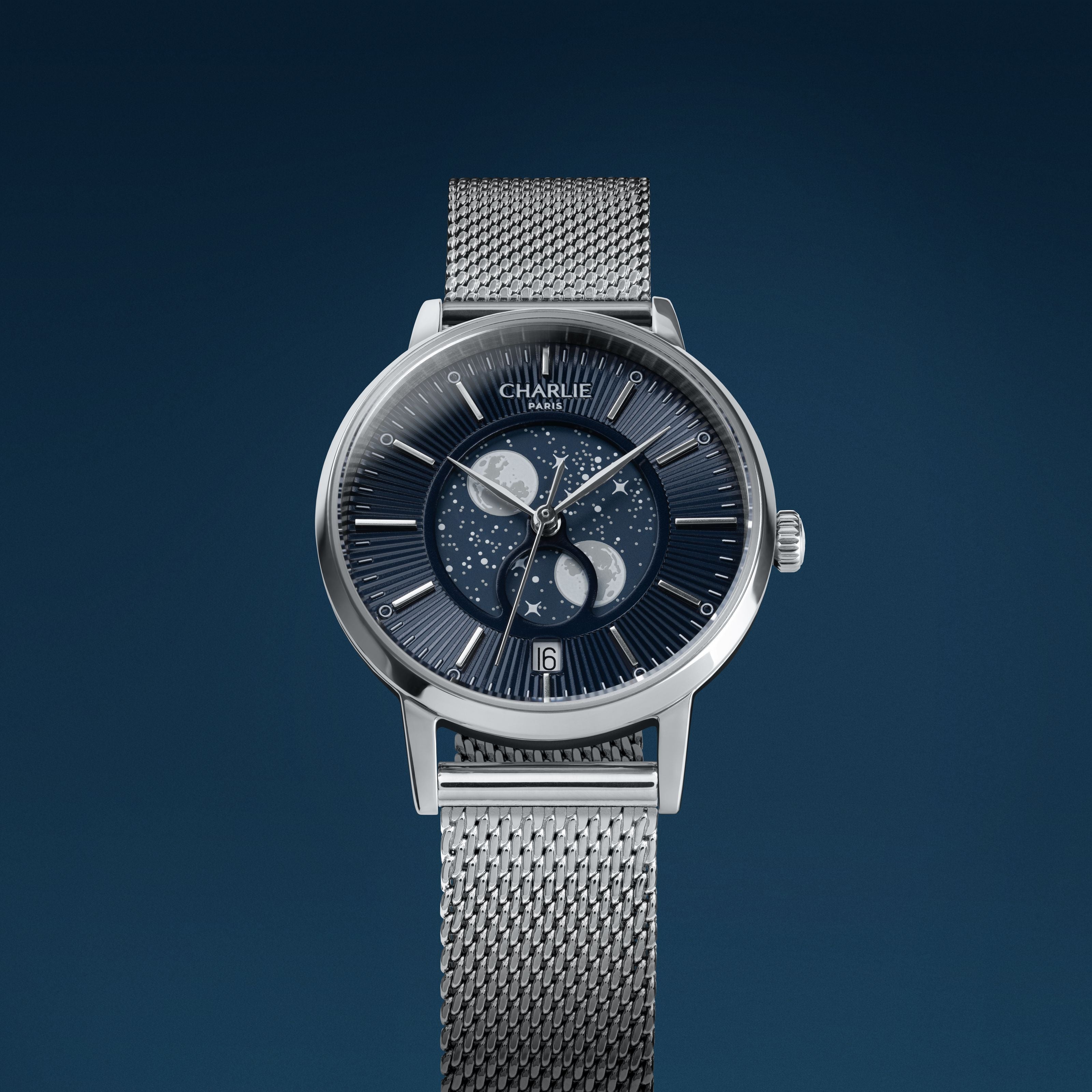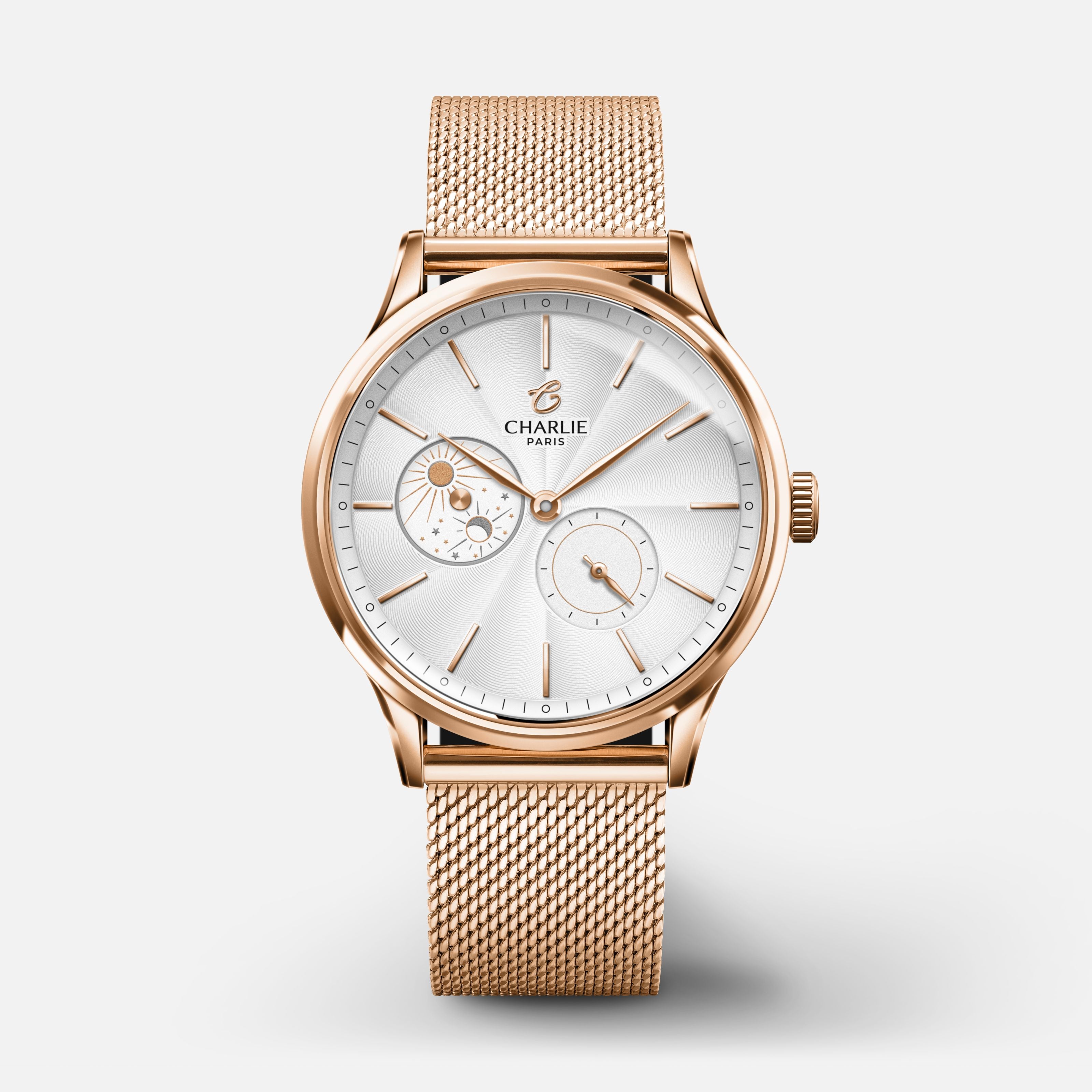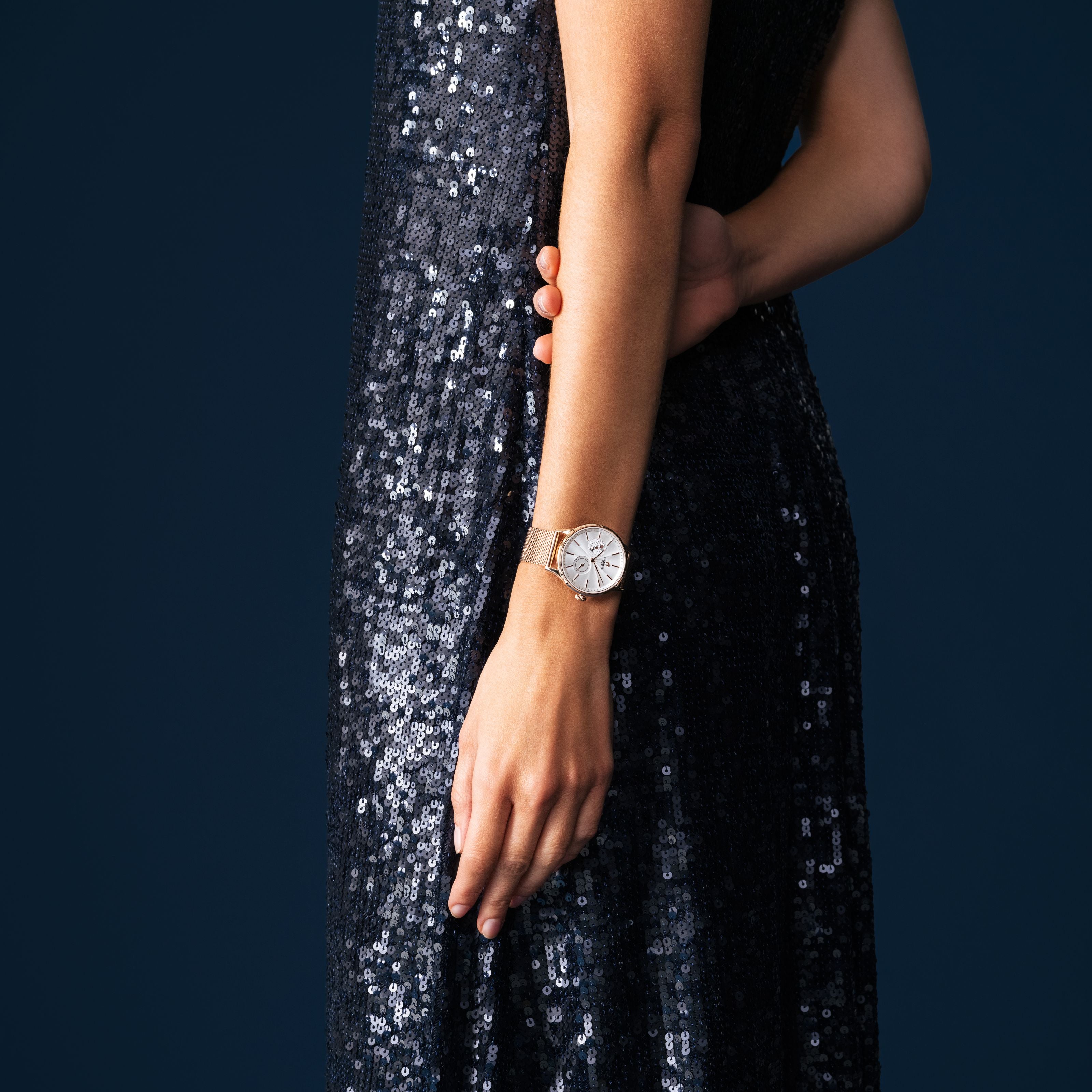Wearing your watch on the left side has become a norm, but is it justified? Many of you wear your Made in France Charlie watch on your wrist, but not on just any side! Very often the left. But why? There are various explanations for this, but for you, and only for you, the Team Charlie Paris has retained three.
90% right-handed: Only 10% of the population is left-handed. Since it's easier for a right-handed person to wear his or her watch on the left, one could simply explain that most people naturally wear it on their left wrist. That said, some left-handed people also wear their watches on the left. So what other explanations are behind this strange custom?
More convenient for winding the watch: Often the winding mechanism of a watch, for an automatic watch for women, is located on the right side of the case. Therefore, left and right-handed people find it more convenient to wear their Charlie Paris watch on the left side to handle with ease, precision, dexterity, finesse and love their winder. It was necessary to think about it!
Wear your watch on the left side to better protect it: In the past, watches were much more fragile. They were cylinder watches with a total absence of anti-shock. Also, the work was much harder and hammers and agricultural tools were frequently used, which would have put the watches to too much strain. The left arm being much less solicited, the watch was worn on the left. If today the watches are more resistant, the habit remained. If you wear your watch on the arm that works the least, you have less risk of damaging it. Also, for right-handed people, when you hold a glass, you naturally do it with your right hand. It would therefore be awkward to wear your watch on that side.
Read more
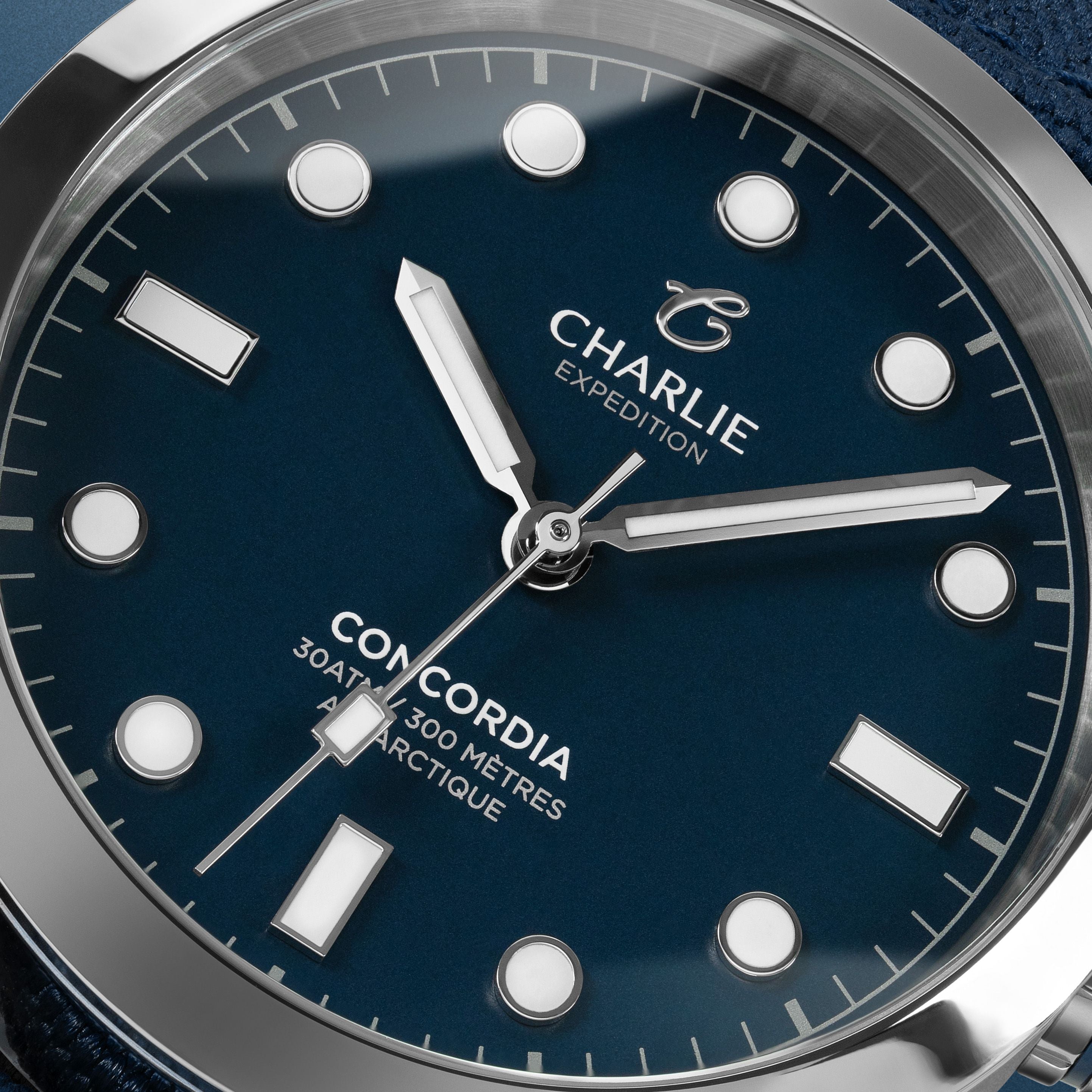
A real revolution in the 70's, the Quartz movement watch is now the most commercialized type of watch in the world. What is the role of the Quartz in the functioning of this type of movement?

A champion aerobatic pilot and adventurer with a passion for mountains and freedom, Tim Alongi pushes the boundaries of both sky and earth. Through our collaboration, a shared vision of exploratio...


